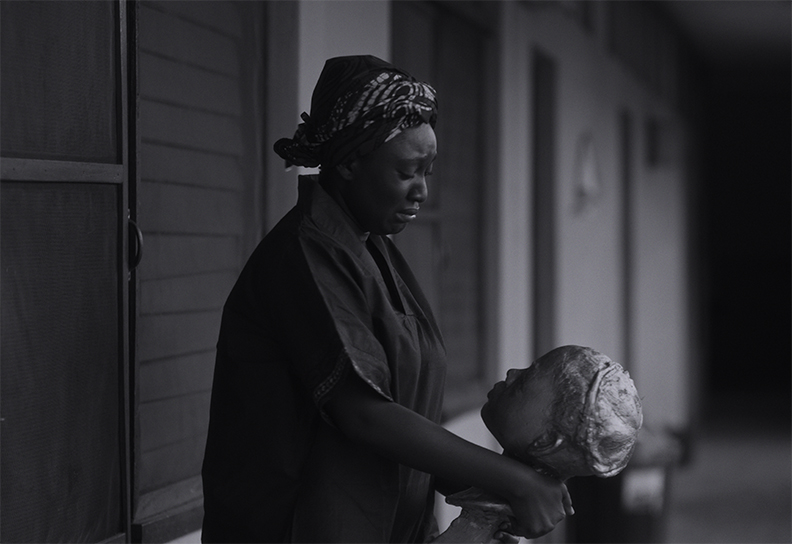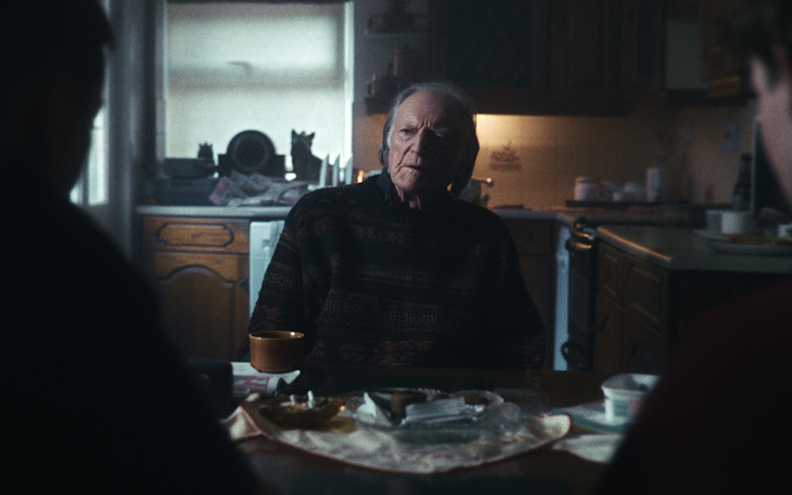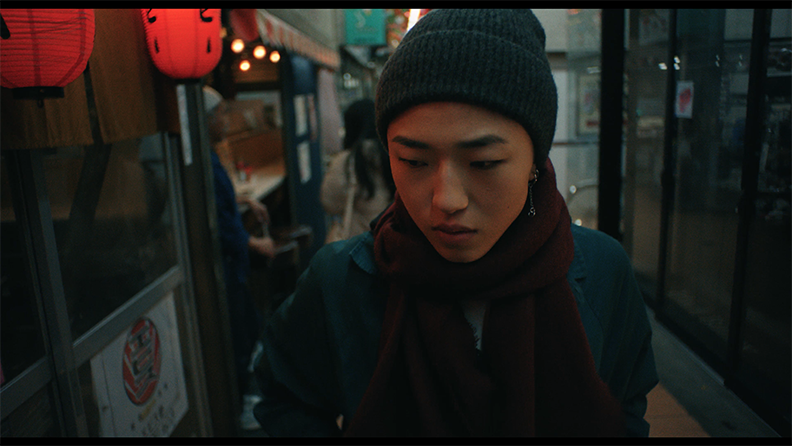
How Art Heals What History Tried to Steal
MOVIE REVIEW
Lost Wax
–
Genre: Drama, Animation, Surrealism
Year Released: 2024
Runtime: 14m
Director(s): Omorose Osagie
Writer(s): Omorose Osagie
Cast: Eyiyemi Olivia Rogbinyin, Wumi Tuase, Diana Egwuatu, Pamilerin Ayodeji
Where to Watch: shown at the 2025 Reelworld Film Festival
RAVING REVIEW: LOST WAX begins with silence—the kind that comes after something has vanished and the world doesn’t yet realize it’s missing. A girl disappears from her apartment complex, and the only person who truly grieves for her is Osas, a “stranger” who barely knew her. What follows is a tender and haunting reflection on empathy, displacement, and the fragile ways human beings find to mourn one another.
Omorose Osagie, the Nigerian-Canadian filmmaker behind this 14-minute short, constructs a world where art and absence share the same language. The film fuses live action with 2D animation, creating a surreal and meditative cadence that feels halfway between dream and ceremony. It’s as if the physical and spiritual realms are collaborating to tell the same story—the loss of one girl, and the echo of countless others who disappeared before her.
At the center of this story is Osas, played with peaceful intensity by Eyiyemi Olivia Rogbinyin. She is not a savior, nor is she a witness in the traditional sense. She’s an artist, a woman rooted in a centuries-old craft: the lost wax process, where a wax sculpture is cast in bronze through fire and transformation. The metaphor is striking—something must melt away to become permanent. Through Osas’s grief, we see how loss becomes art, and art becomes the only way to carry memory forward.
Osagie’s film draws a parallel between the disappearance of Mercy, the young girl, and a theft. The connection is devastating: just as the art was taken from its home and placed behind glass in international museums, so too are lives taken—erased, displaced, or commodified through systems that never cared to remember their origins. The film refuses to state this overtly; instead, it allows the audience to feel its weight through imagery and texture. The result is not moralizing but deeply emotional.
LOST WAX belongs to a growing lineage of contemporary African cinema reclaiming stolen narratives. But where others rely on confrontation, Osagie leans into intimacy. Her approach is personal rather than political, though the politics are inseparable from the individual. Her director’s statement underscores this intent: we don’t need to know someone to care for them. It’s an ethos that courses through every frame of the film.
The supporting cast enhances the world’s realism. Wumi Tuase delivers a heartbreaking performance as Mercy’s mother—a portrait of grief that doesn’t beg for sympathy but insists on dignity. Diana Egwuatu’s brief but significant presence as Mercy, the absent figure whose disappearance drives the story, lingers in every space Osas moves through. Even when she’s gone, the film makes you feel her presence, as if the world itself has reshaped to accommodate the void she left behind.
Visually, cinematographer Antonia Ramirez captures the story with precision. The choice of a 4:3 aspect ratio feels claustrophobic but purposeful, confining the viewer to Osas’s point of view—a life lived between walls, both literal and communal. When the animation begins to merge with the live action, the transition feels seamless, suggesting that art and reality coexist rather than compete.
The film’s soundscape, designed by Christopher Clark, blends ambient sounds with faint metallic reverberance—a subtle reminder of Osas’s craft. Nyla Smith’s score doesn’t impose emotion but guides it, letting silence linger long enough to feel uncomfortable. Each choice feels deliberate, drawing the viewer closer to Osas’s world until the line between audience and subject blurs.
Osagie’s background as an Edo woman raised in Canada gives the film its dual consciousness. She understands both the cultural specificity of Benin’s history and the broader universality of grief. The film becomes a bridge between worlds—Nigeria and Canada, past and present, art and life. Her direction shows restraint but also confidence; she trusts the audience to follow emotion rather than exposition.
In its final moments, the film achieves something rare: transcendence through stillness. There’s no “climax,” no musical swell—only the weight of shared recognition. Osas and Mercy’s mother stand, and for a breathless second, the distance between artist and audience, life and loss, vanishes. It’s as though the film itself has melted away, leaving behind only what matters: the imprint of care.
LOST WAX isn’t a story about demise—it’s about what endures when everything else is taken. It reminds us that empathy, like bronze, is forged under heat and pressure but meant to last. Osagie’s film doesn’t just memorialize the lost; it redefines remembrance as an act of creation. In a fractured world, it’s a quiet piece of cinema that insists on connection where others see separation.
Please visit https://linktr.ee/overlyhonestr for more reviews.
You can follow me on Letterboxd, Instagram, Twitter, and YouTube. My social media accounts can also be found on most platforms by searching for 'Overly Honest Reviews'.
I’m always happy to hear from my readers; please don't hesitate to say hello or send me any questions about movies.
DISCLAIMER:
At Overly Honest Movie Reviews, we value honesty and transparency. Occasionally, we receive complimentary items for review, including DVDs, Blu-rays, CDs, Vinyl Records, Books, and more. We assure you that these arrangements do not influence our reviews, as we are committed to providing unbiased and sincere evaluations. We aim to help you make informed entertainment choices regardless of our relationship with distributors or producers.
Amazon Affiliate Links:
Additionally, this site contains Amazon affiliate links. If you purchase through these links, we may receive a commission. This affiliate arrangement does not affect our commitment to honest reviews and helps support our site. We appreciate your trust and support in navigating these links.



Average Rating